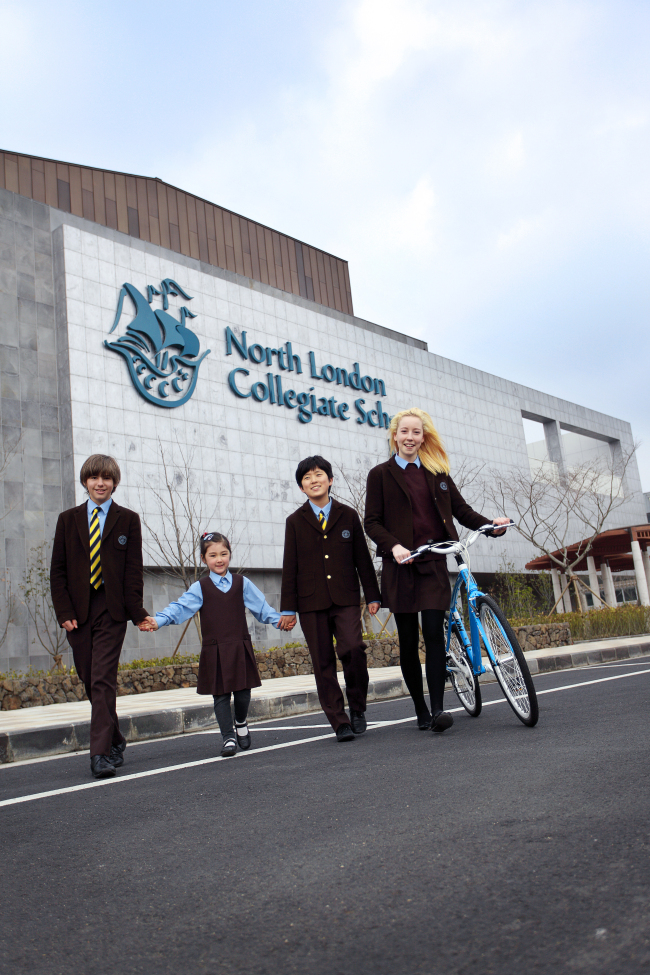[Eye on English] International schools alternative to overseas study
By Park Hyung-kiPublished : Jan. 8, 2014 - 20:09

International schools have long been favored by the nation’s affluent students as an alternative to studying overseas and as a means to enter top U.S. colleges.
International schools in Korea were originally set up to educate the children of foreign employees or Korean students who had studied overseas due to their parents’ jobs.
Thus, the applicants must have foreign nationality or have lived overseas for at least three years. Annual tuition fees are generally more than 20 million won ($19,000) ― around 14 times higher than ordinary high school fees of 1.4 million won in Seoul.
Despite the regulation and high tuition costs, the schools are still in high demand among a select few.
“In order to meet the qualification, there are some parents who send their kids overseas for three years or even some who manipulate their children’s nationality,” said Chung Jin-hoo, a lawmaker and member of the national Education, Culture, Sports and Tourism Committee.
Last year alone, around 341 students were accused of entering the schools illegally. On top of this, there were some mothers who gave birth overseas in order for their children to get foreign nationality, despite a law passed in 2010 designed to stop the practice.
The number of Korean students at international schools grew to 4,000 in 2012, accounting for 31 percent of the total 13,000 students at those schools, according to the Ministry of Education.
Recently, on Jejudo Island, international schools were set up that do not require students to have foreign nationality or overseas experience. The U.K.’s North London Collegiate School Jeju and Canada’s Branksome Hall Asia were established in 2010 as part of the government’s effort to make Jejudo Island a global education hub, and to curb spending on studying overseas.
The school provides the same educational philosophy and curriculum as overseas schools, said Hong Kyung-eun, public relations manager at the school.
As the school is located far from the mainland, parents have to spend extra money on dormitory and airline tickets in addition to 20 million won of tuition fees. In total, it costs over 50 million won a year, according to data from the Jeju Free International City Development Center.
Though the eased regulations may not be good news for many middle-income families, there are some parents who view this as an opportunity for their children.
A mother whose child is studying at a Jeju international school said, “Despite the higher cost, I chose this school to raise my child in an international learning environment. The best choice for students in Korea may be to go to Seoul National University, but my child now has an additional option: Ivy League colleges.”
By Shin Ji-hye (shinjh@heraldcorp.com)



![[Exclusive] Korean military set to ban iPhones over 'security' concerns](http://res.heraldm.com/phpwas/restmb_idxmake.php?idx=644&simg=/content/image/2024/04/23/20240423050599_0.jpg&u=20240423183955)

![[Graphic News] 77% of young Koreans still financially dependent](http://res.heraldm.com/phpwas/restmb_idxmake.php?idx=644&simg=/content/image/2024/04/22/20240422050762_0.gif&u=)



![[Pressure points] Leggings in public: Fashion statement or social faux pas?](http://res.heraldm.com/phpwas/restmb_idxmake.php?idx=644&simg=/content/image/2024/04/23/20240423050669_0.jpg&u=)









